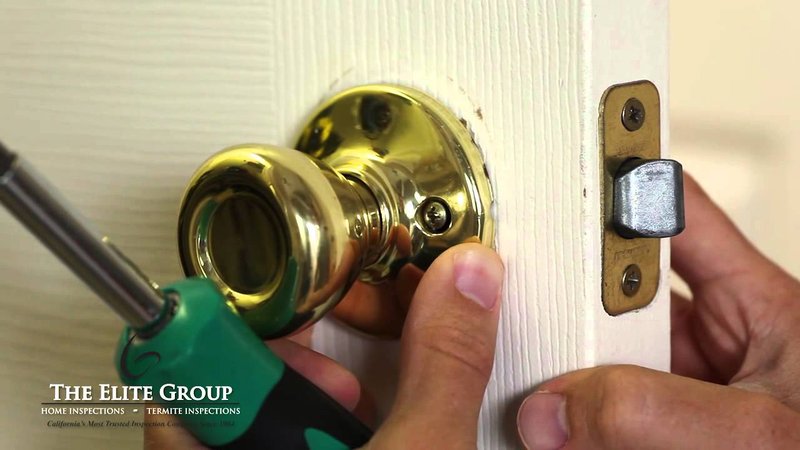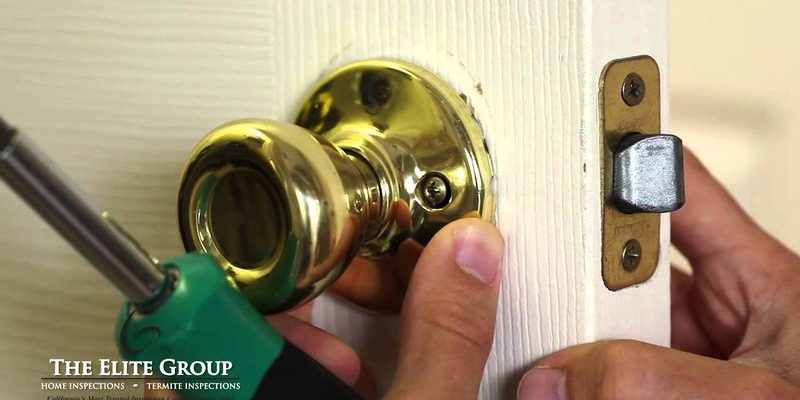
Imagine your door is like a quiet library where everyone is trying to concentrate. A loud latch is like a loud sneeze—everyone turns to look. Whether you’re trying to avoid waking someone or simply prefer silence, a noisy latch can be a nuisance. Let’s dig into what might be causing this and how you can fix it.
Understanding Your Door Latch Mechanism
To solve the problem, it helps to first understand how a door latch works. Think of a door latch as a simple yet clever mechanism. It usually consists of a bolt that slides into a strike plate on the door frame, allowing it to stay closed. When you turn the handle or knob, it retracts the bolt, making it possible to open the door.
Now, if your latch is making noise, it’s often due to friction somewhere in this process. That might mean the bolt isn’t sliding smoothly or something is misaligned. Here’s how to potentially identify what’s happening:
– Check for Obstructions: Sometimes, dust or other debris can get lodged in the latch mechanism. This can cause it to grind against other parts, creating noise when you open or close the door.
– Look for Rust or Wear: If you have an older door, rust might be the culprit. It can cause the latch to stick or not retract smoothly.
– Alignment: Is your door fitting snugly in its frame? If it’s misaligned, the latch might be struggling to engage properly.
Lubricating the Latch: A Quick Fix
Before diving into more complex solutions, let’s talk about lubrication—your best friend in this scenario. Think of it like putting on lotion on dry skin; it makes everything move smoothly. Lubrication can often eliminate that annoying noise.
Here’s how to do it:
1. Choose the Right Lubricant: Look for a silicone spray or a graphite lubricant. Avoid oil-based products since they can attract dirt and grime over time.
2. Apply Sparingly: Spray a small amount directly into the latch mechanism. You don’t want excess to drip everywhere.
3. Work the Latch: Open and close the door a few times to ensure the lubricant spreads evenly. This will help reduce friction and hopefully quiet things down.
Adjusting Misaligned Latches
If lubrication doesn’t solve the problem, you might be dealing with a misalignment issue. When your latch and strike plate aren’t aligned properly, it can create noise as the latch struggles to fit into the strike plate.
To adjust a misaligned latch:
1. Inspect the Strike Plate: Check if it’s properly secured to the door frame. Sometimes screws can loosen over time.
2. Shimming: If the latch is too high or low, you might be able to shim it. Use small washers to adjust the height of the strike plate on the door frame.
3. Repositioning the Latch: If shimming doesn’t work, consider repositioning the latch itself. This might involve removing it, shifting it slightly, and then reattaching it.
This process might seem a little daunting, but with some patience, you can do it.
Replacing the Latch: When All Else Fails
If you’ve tried lubrication and adjustments without success, you may need to replace the latch entirely. While this sounds like a big project, it’s often straightforward.
1. Choose the Right Latch: Make sure to get a latch that matches your door’s size and style. A quick trip to the hardware store will help you find one that fits your needs.
2. Remove the Old Latch: Unscrew the old latch from the door and the strike plate. Take your time not to damage the door frame.
3. Install the New Latch: Follow the instructions that came with your new latch. It should come with all the necessary hardware. Secure it in place, and then attach the new strike plate.
Replacing the latch might feel like a hassle, but it can make a world of difference in both functionality and noise levels.
Additional Tips for Quiet Doors
If your door is still noisy after these fixes, there are a few other things you can consider. It’s like having a toolbox: the more options you have, the better prepared you are.
– Try a Rubber Stop: Adding a rubber stop or bumper on the strike plate can reduce noise when the latch engages. This creates a softer landing for the latch.
– Soundproofing: If noise is a common issue in your home, you might want to look into soundproofing options, like weather stripping or door sweeps. These can muffle sound and prevent it from echoing through the hallway.
– Consult a Professional: If the problem persists, especially if you live in an older home, it might make sense to call in a professional. They can assess the situation and provide a solution that’s safe and effective.
Importance of a Functioning Latch
A working latch isn’t just about avoiding noise; it’s also essential for safety and security. Imagine if a latch fails—your door wouldn’t close properly, leaving your home vulnerable. Keeping your latches in good working order is crucial for peace of mind.
Regular maintenance, like checking and lubricating your latches, can help prevent issues from escalating. Plus, it ensures that you can open and close doors quietly whenever you need to.
Let’s face it, we all appreciate a little quiet in our lives. Whether it’s for sneaky midnight snacks or peace during a movie night, a silent door latch can make all the difference.
If you’re dealing with a noisy door latch, don’t fret. With a bit of understanding, some simple tools, and the right approach, you can easily troubleshoot this common issue. Remember—keeping the peace starts with a smooth, quiet latch!
